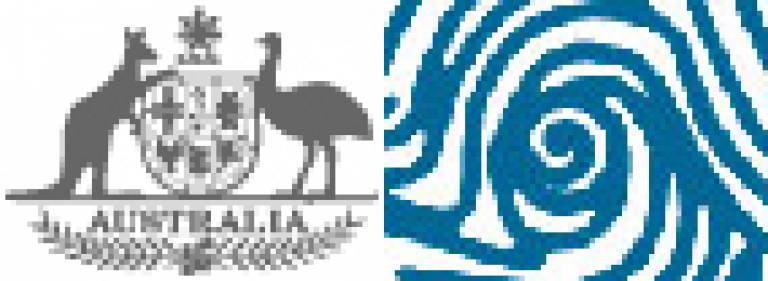Indigenous remains to return to Australia and New Zealand
30 January 2007
UCL Museums and Collections is to give indigenous human remains used in teaching and research to the Australian Government and the Museum of New Zealand Te Papa Tongarewa.

The two organisations requested that a total of thirteen skulls and one limb bone be repatriated, on the basis that they had been obtained during a period when the remains of many indigenous peoples were removed from their burial grounds without the consent of the relevant communities.
The remains are currently held in The Grant Museum of Zoology, The Institute of Archaeology Collections, the Biological Anthropology Collections and the Anatomy Collections. A survey undertaken by Sally Macdonald, Director of UCL Museums and Collections, found that the materials have two main uses: to demonstrate racial differences to archaeology and anthropology students, and to members of the police; and as illustrations of modern human variation for anthropology students.
The UCL Museums and Heritage Committee decided that the importance of these uses is outweighed by the cultural and religious significance accorded to human remains by the communities from which they are drawn. The decision to return all the remains requested is in line with the university's policy to recognise the pre-eminent rights of recognised representatives of communities to claim their ancestors' rights.
Although most of the remains cannot now be traced to specific communities, the Australian Government and Te Papa both have procedures in place to help closer provenancing once the remains are repatriated. The Australian Government's request follows a joint statement made by Prime Ministers John Howard and Tony Blair in July 2000 to make increased efforts to return human remains to Australian indigenous communities. In 2003 Te Papa was mandated by the New Zealand Government to establish a repatriation programme for all Maori and Moriori human remains.
Mal Brough, Australian Indigenous Affairs Minister, today said: "I welcome UCL's decision to repatriate all Indigenous human remains from its collection. This is another example of the strong commitment of the Australian and United Kingdom Governments to returning Indigenous remains to Australia, which has resulted in nearly 1,000 Indigenous remains being returned to Australia since 1996. I would urge other international museums to follow UCL's lead and repatriate Indigenous remains unconditionally to where they belong."
Natasha Barrett of Te Papa said, "In a general sense all Mäori and Moriori reminas are sacred and continue to contain Mäori knowledge, which remains unbroken despite the removal of these ancestral remains from New Zealand. Their repatriation represents the completion of a continuing cycle of returning back to Mother Earth, and offers some way forward towards reconciliation for iwi (Mäori tribes). It also provides an opportunity for museums to work as advocates for understanding and interpreting cultures by being part of this process. The process leading to the unconditional return of these remains has been handled promptly, professionally and sensitively by UCL."
 Close
Close

